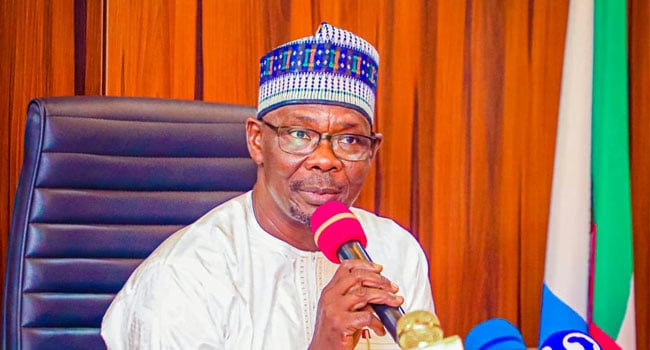Abdullahi Sule, the governor of Nasarawa state and chairman of the North Central Governors’ forum, has highlighted multiple reasons behind the persistent underdevelopment in Nigeria’s northern region. Speaking on Channels Television’s Politics Today on Monday, he pointed to a blend of factors including ineffective leadership, inadequate infrastructure, unreliable power supply, and certain federal government policies.
When asked about the root causes of the region’s stagnation, Sule emphasized that no single issue is solely responsible. He explained, “The challenges we face stem from a combination of elements: a lack of dedicated leadership, insufficient commitment from workers, and sometimes restrictive federal policies on imports. Additionally, the country’s power deficit and poor infrastructure funding exacerbate the situation.”
He further noted that the discovery of oil shifted national focus away from other vital sectors like agriculture. “With oil wealth flowing into states, there was a tendency to become complacent, assuming that oil revenues would last indefinitely. This shift led to a decline in attention to other economic areas,” Sule remarked. However, he expressed optimism, stating, “Fortunately, we now have numerous opportunities to address these issues and steer development in the right direction.”
At the ongoing Northern Nigeria Investment and Industrialisation Summit, Sule praised the collaborative efforts of the Northern Elders Forum, led by Professor Ango Abdullahi, and the Northern Economic Agenda Initiative for organizing the event. He explained that the summit focuses on three pragmatic sectors rather than pursuing overly ambitious projects. “We avoided unrealistic ventures like aircraft manufacturing, which are often impractical. Instead, the summit zeroes in on agriculture, urban power, and mining,” he said.
However, Sule stressed that progress in these sectors hinges on resolving security challenges. “Security is foundational. Without it, agriculture, energy, and mining cannot thrive. It’s time for each state to take ownership of its internal security rather than relying solely on federal intervention,” he urged. He added that states possess varying resources and, with proper planning, can effectively manage their security concerns.
Regarding agricultural development and investment strategies in Nasarawa and beyond, Sule revealed plans to establish a committee to collaborate with the federal government on grazing reserves and agricultural zones equipped with existing infrastructure. “The federal government is committed to funding these initiatives, ensuring they are strategically located,” he said.
He also highlighted a recent agreement signed at the summit to pursue shared economic interests, with states focusing on their competitive advantages. “For example, Nasarawa is well-positioned for lithium mining, while Zamfara has potential in gold extraction. We aim to concentrate on areas where we have strengths rather than spreading ourselves thin,” Sule explained.
He emphasized the importance of partnerships in investment, noting, “We’re not just seeking investors; we want collaborators who will contribute by preparing land and developing infrastructure as part of their equity in the ventures.”
On the economic front, Sule pointed out agriculture’s significant contribution to Nigeria’s GDP, which stood at 26% in the second quarter. “Expanding agriculture can enable us to feed neighboring countries like Niger, Cameroon, Chad, and Mali. Meanwhile, mining offers a promising alternative to oil dependency,” he said. He also mentioned the potential for northern Nigeria to generate substantial energy, referencing the AKK gas pipeline that originates and terminates in the region.
Addressing rumors about the Dangote Petroleum Refinery allegedly dismissing 800 Nigerian workers for union activities, Sule dismissed the claims as inconsistent with the refinery’s operational needs. “It’s unlikely that Dangote would suddenly lay off such a large number of employees. The refinery requires thousands of skilled workers to operate continuously,” he stated.
He recounted the refinery’s extensive workforce during construction, noting, “At peak construction, over 10,000 workers were employed, all of whom received training. The refinery’s distillation unit alone is as complex as a 40-storey building, demanding constant, skilled operation.”
While commending the federal government’s intervention in the dispute, Sule remarked, “It’s encouraging that the government has stepped in. It’s in everyone’s interest to ensure that key institutions like the Dangote Refinery remain operational and successful.”

















